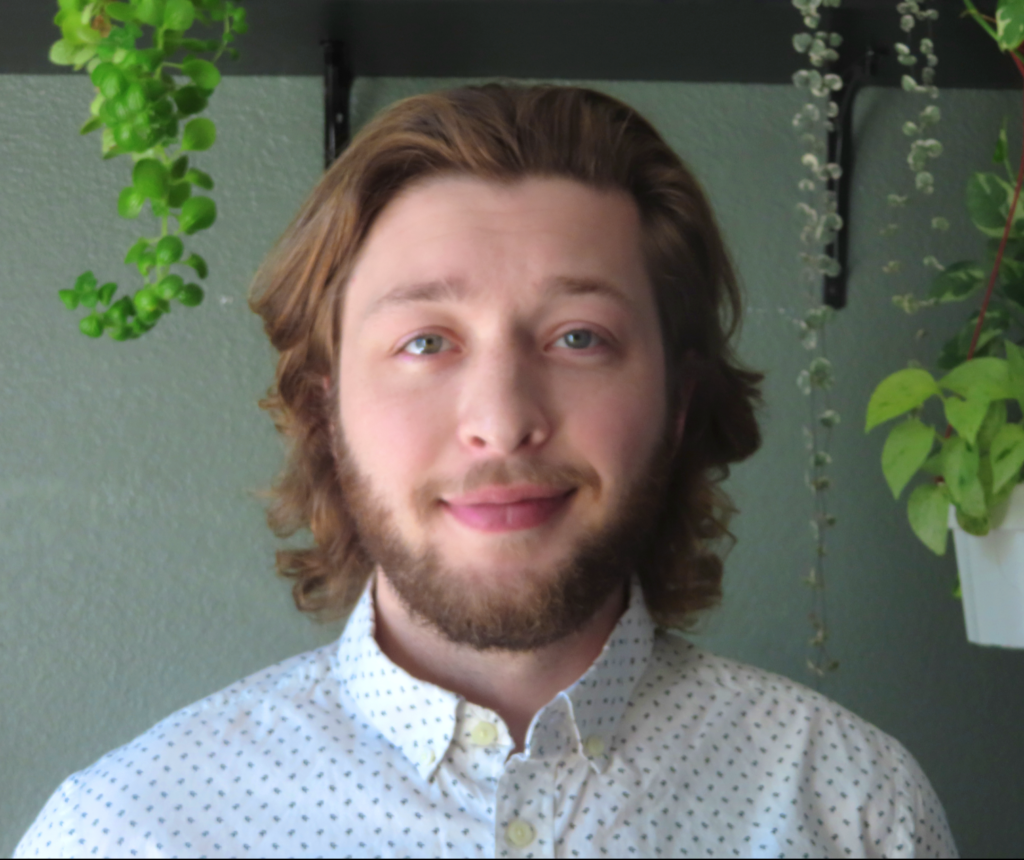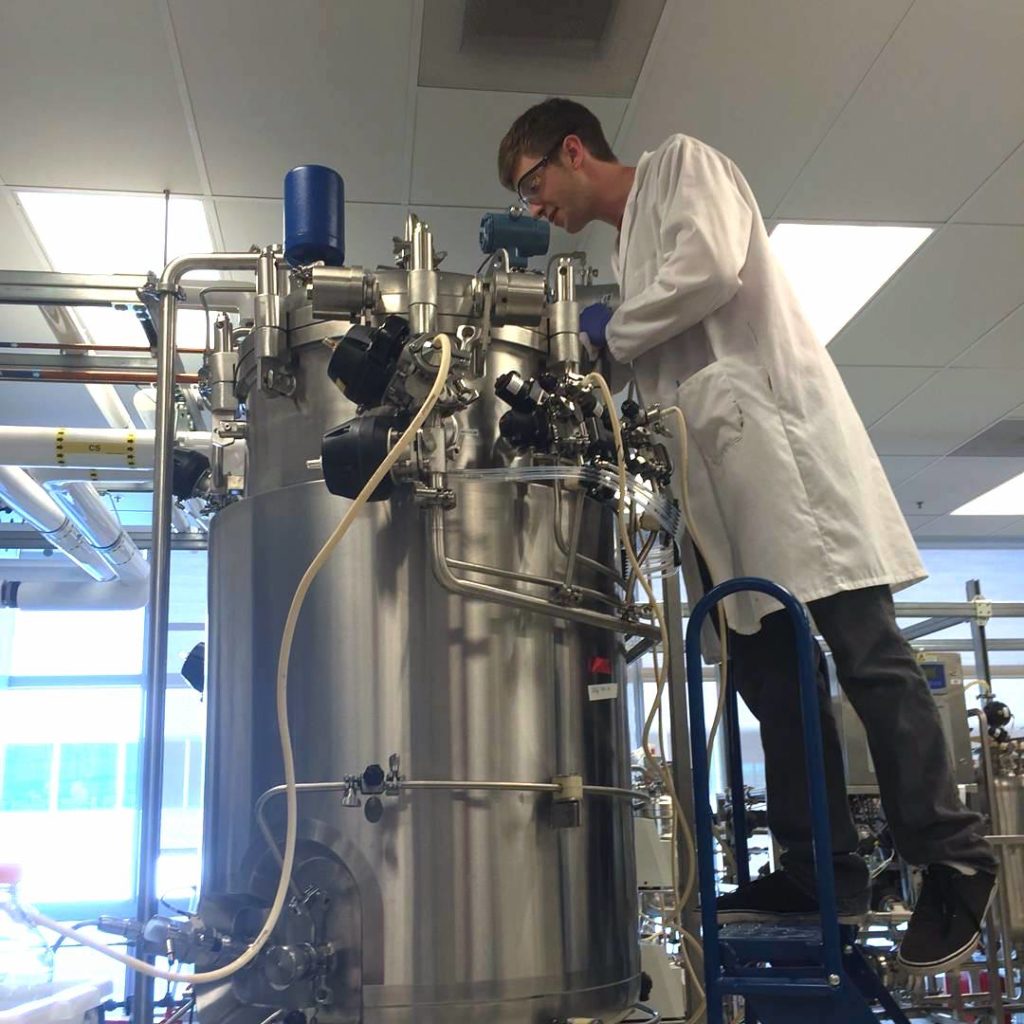This series highlights ABPDU alumni. We interview different alumni to learn more about their career path and what makes them passionate about their work.

Robin Herbert joined the ABPDU in 2014 as fermentation and recovery intern through the Bio-Manufacturing to Market program. Now, he is a Ph.D. student at the University of California, Berkeley.
How did you become interested in biomanufacturing?
I’ve always been attracted to applied biology. While I was a student in the biomanufacturing program at Laney College, I learned about an internship at ABPDU and my teachers encouraged me to apply.
Tell me about your experience at ABPDU.
I was exposed to a variety of research projects and industry collaborators, which I’m grateful for. I worked on multiple projects simultaneously, using both small scale and larger scale bioreactors, which was a great experience. It was interesting learning to work with those mechanical systems and how they could introduce sources of error into an experiment. I learned how to troubleshoot whether I had done something wrong or if it was just the equipment.

Overall, it was an exciting experience and an environment that was great to learn in as an intern. My mentors were super accommodating and welcoming. That, and a busy environment with diverse projects meant it was always interesting.
What did you do after your internship?
I transfered to San Francisco State University and earned my bachelor’s degree in microbiology. Then, because of my experience at ABPDU, I was able to get my first job at the Joint BioEnergy Institute. The lab there was working with small scale bioreactors, so my experience working with bioreactors at ABPDU was pretty helpful.
I’m now pursuing my Ph.D. at the University of California, Berkeley in plant biology. I’m fascinated by symbiosis and mutualistic interactions between plant hosts and bacteria. I would love to apply these interactions for the benefit of agriculture and environmental stewardship.
What did you learn from your experience at ABPDU that you carry with you today?
The concept of scale has really stuck with me. For example, you can develop a technology at bench scale and have it work phenomenally, then if you try to scale it up, it might not work as well. That’s the main impetus for ABPDU’s existence, but it’s also a common theme across a variety of fields. For example, if I get a plant and bacterium to interact in a certain way in a lab, that doesn’t mean that interaction will scale to an agricultural field. So having that mindset of thinking about things in a broader context has been helpful.